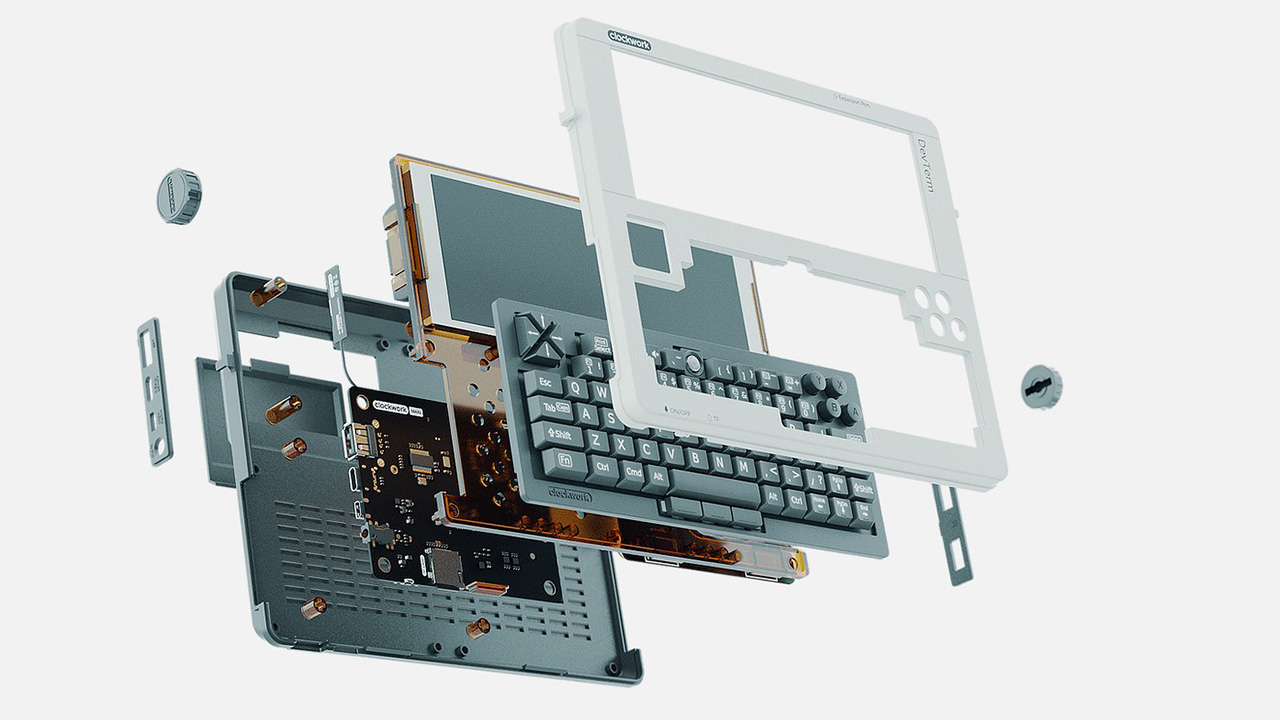Delayed Retro Portable DevTerm Shipping Soon
Tardy, not Tandy
Get Tom's Hardware's best news and in-depth reviews, straight to your inbox.
You are now subscribed
Your newsletter sign-up was successful
Backers of ClockworkPi’s DevTerm, the cyberdeck in kit-form we covered back in 2020, should start to see shipping notifications soon after the tiny PC was delayed from its original April launch.
Clockwork Pi's founder Hal took to Twitter to showcase the unit's capabilities, showing platform adventure game Cave Story running on the ultra-wide screen.
Ultra-Wide #CaveStory (Nxengine-evo with a tiny patch). https://t.co/gVAkH84OjT #DevTerm #GameShell #ClockworkPi #LinuxbasedSexyDevice pic.twitter.com/iRt94cd1U2July 15, 2021
Delayed due to the global chip shortage, DevTerm takes its inspiration from the Tandy TRS-80 a popular portable PC from the 1980s. DevTerm is the size of an A5 piece of paper (5.8 x 8.3in) and has a modular design with a choice of ‘core modules’ powering the machine, from a Raspberry Pi Compute Module 3 Lite with 1 GB of RAM up to a custom design based on two ARM CPUs (a dual-core Cortex A73 and a quad-core Cortex A53) as well as 4GB of the dynamic stuff. Storage is handled via Micro SD cards.

The other half of the motherboard houses the ‘ext module’, and carries USB ports, a camera interface, speakers and a fan by default. The plan is for custom ext modules to be swapped in, with things like oscilloscopes and 5G modules envisioned.
The whole thing is topped off with an ultra-wide 6.8in IPS screen with a resolution of 1280 x 640. There’s a 67-key keyboard with a mini trackball, and a set of arrows and buttons to use as a gamepad. The whole thing, including source code, is being released under the GPL v3 license, with the project files on GitHub. And, naturally, it runs Linux, with a choice of Clockwork OS, Debian, Ubuntu or the Raspberry Pi OS.
Check out the ClockworkPi website for more information.
Get Tom's Hardware's best news and in-depth reviews, straight to your inbox.

Ian Evenden is a UK-based news writer for Tom’s Hardware US. He’ll write about anything, but stories about Raspberry Pi and DIY robots seem to find their way to him.